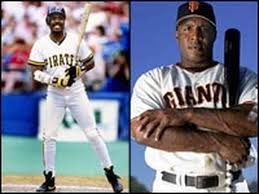
Saving Bonds. The Ninth Circuit granted an en banc hearing. The court quoted the testimony for which Bonds was convicted of obstructing justice:
Q: Did Greg [Bond’s trainer] ever give you anything that required a syringe to inject yourself with?
A: I’ve only had one doctor touch me. And that’s my only personal doctor. Greg, like I said, we don’t get into each others’ personal lives. We’re friends, but I don’t—we don’t sit around and talk baseball. If you want to come to my house and talk about fishing, some other stuff, we’ll be good friends. You come around talking about baseball, you go on. I don’t talk about his business. You know what I mean?
The Ninth Circuit’s en banc opinion discusses how the statute Bonds was convicted of violating [18 U.S.C.§ 1503] poses a significant hazard for everyone involved in our system of justice, “because so much of what the adversary process calls for could be construed as obstruction,” and “because the statute sweeps so broadly.” Bonds’ conviction was reversed for insufficient evidence. (United States v. Bonds (Ninth Cir.; April 22, 2015) 784 F.3d 582.)